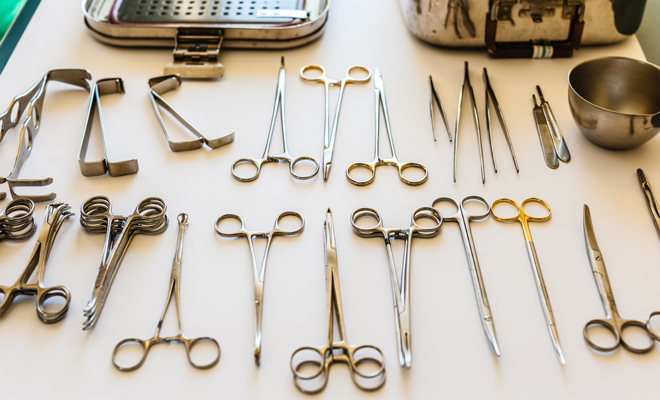A Sterile Processing Technician is a vital healthcare professional responsible for ensuring the cleanliness, sterility, and proper handling of medical instruments, equipment, and supplies used in various medical procedures and surgeries. These technicians play a crucial role in maintaining a safe and infection-free healthcare environment by meticulously cleaning, decontaminating, sterilizing, and packaging medical tools, ensuring they are ready for use by healthcare professionals during patient care. Sterile Processing Technicians follow strict protocols and guidelines to prevent the spread of infections and contribute to the overall quality and safety of healthcare services.
This course involves a careful examination of the different processes involved in CBSPD. Upon completion of training, students receive a Certificate of Completion and prepare to take the proficiency examination by the Certification Board for Sterile Processing and Distribution, Inc. (CBSPD).
Roles and Responsibilities: Students would learn about the various roles and responsibilities of individuals working in the sterile processing department, including the importance of their work in maintaining patient safety.
Microbiology: This section would cover the basics of microbiology, helping students understand the types of microorganisms, their growth, and how they relate to infection control.
Infection Control: Infection control is a critical aspect of maintaining a safe healthcare environment. Students would learn about different infection control protocols, techniques, and practices to prevent the spread of infections.
Decontamination: Decontamination involves the cleaning and removal of contaminants from medical instruments and equipment. Proper decontamination processes are essential to ensure that items are safe for further handling and sterilization.
Patient Care Equipment: This area of study might focus on the proper handling, cleaning, and maintenance of equipment used in direct patient care, such as endoscopes and other reusable devices.
Preparing and Packaging of Surgical Instruments: Properly preparing and packaging surgical instruments for sterilization is crucial to maintaining their sterility until they are needed for procedures.
Sterilization: Students would learn about different methods of sterilization, such as steam sterilization, ethylene oxide sterilization, and others. Understanding the principles behind sterilization is vital to ensure that instruments are safe for patient use.
Sterile Storage: After sterilization, maintaining the sterility of instruments during storage is important. Students would learn about proper storage techniques and conditions.
Distribution: This section would cover the distribution of sterile instruments and equipment to various departments within a healthcare facility, ensuring that they are available and ready for use when needed.
Upon completing the course, students would receive a Certificate of Completion, which signifies that they have successfully undergone the training program. Subsequently, they would be eligible to take the proficiency examination administered by the Certification Board for Sterile Processing and Distribution, Inc. (CBSPD). Passing this examination would demonstrate their competence in the field and could lead to certification as a sterile processing and distribution professional.
Overall, this type of course is vital for individuals who aim to work in sterile processing and distribution roles within healthcare facilities, ensuring the safety and well-being of patients through proper handling and maintenance of medical equipment.


Copyright © Nurse Builders Academy 2022-2023. All right reserved.
Website Development | Hosting | SEO | Digital Marketing